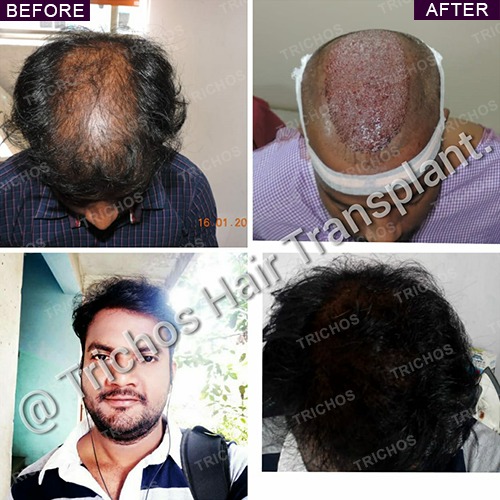What is Alopecia Areata & How to Deal With it?
Alopecia Areata is known to be an autoimmune disease. It leads to the formation of spot baldness with round spots seen in affected areas of the scalp.
Regarded as hereditary, a delay in alopecia areata treatment can spread the baldness as it is seen covering wider areas of the scalp in some patients.
In this educational video, Dr John Watts – a noted dermatologist, trichologist and hair transplant surgeon in Hyderabad – explains more about Alopecia Areata and different ways to deal with it.
Alopecia Areata: Types:
In his introductory note, Dr John Watts tells the viewers that in Alopecia Areata, the cells providing immunity starts attacking healthy hair follicles mistaking them for foreign body.
“If the entire scalp is affected, we call it Alopecia Totalis but if the entire body is affected, we term it Alopecia Universalis,” informed Dr John.
Alopecia Areata: Treatment
Dr John Watts informed the viewers that those suffering from Alopecia Areata often take to the traditional crude method of treatment with Jatropha seeds (Nepali ginjalu) but they are not safe.
“This treatment sometimes works as it creates a mild irritant and induces inflammation. This helps in hair growth in the affected region but it often leads to adverse consequences like a wound with pus formation, leading to permanent hair loss,” he informed.
Instead, the best solution is to try medically formulated mild and safe irritants that are available in the form of lotions or tinctures. “Once you apply this to the affected region, it induces mild inflammation and stimulates hair growth,” informed Dr John.
If the above method fails, Dr John informs that one can try intra-dermal steroid injections to stimulate hair growth in the affected region.
In case both the above methods fail, Dr John suggests the use of immunomodulator creams. “There are some brands available that may help but it needs to be used only with a doctor prescription,” he advised.
There is another wonder drug called CTP-543 but it is yet to be available on the market. However, if all three above options fail, Dr John said that one may be prescribed a course of mild steroids over time.
“One of the above options will work for an Alopecia Areata patient,” he informed.
Alopecia Areata & Hair Transplant:
When one is suffering from Alopecia Areata, it is a bad idea to opt for a hair transplant and it may backfire. “One must first treat Alopecia Areata condition before opting for a hair transplant. Else even healthy transplanted hair may be lost,” he warned while urging the viewers to share the video among their friends for awareness.
Trichos provides state-of-the-art treatment for various hair loss conditions and offers advanced hair transplant solutions. Call us Today for a Life-Changing Experience.
Book an appointment for expert guidance


About
Causes
Alopecia
Restoration
Procedures
Locations
Disclaimer: While hair transplants are generally safe and effective, as with any medical procedure, there can be minimal and temporary side effects based on specific or underlying medical condition of the individual patient. Please consult in person with our qualified medical team at Trichos for a thorough assessment of your specific condition and individualized guidance on the potential risks and benefits associated with our hair restoration treatments.
Learn more about Medical Consent for Surgeries.



